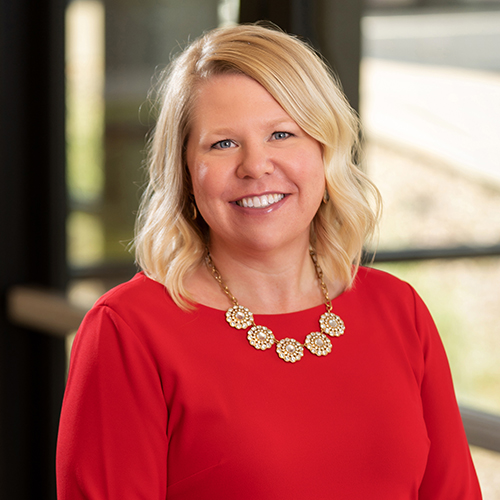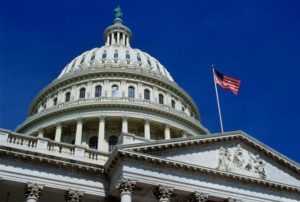Expert

Christy Carel
Actions
Type
Topic
- Governance
Tags
2023 Legislative Summary
MHA Contact: Jane Drummond

For those who follow the Missouri General Assembly, the end of session can produce elation, frustration or a mixture of both. To the uninitiated, the machinations of the legislature can be confounding and contrived. Thanks to the expertise of health care advocates within and outside of MHA, several measures benefitting hospitals and health systems were passed by the legislature this session.
The final budget includes several MHA priorities, as well as other favorable appropriations. House Bill 11 includes $20 million of general revenue spending to supplant provider taxes paid by hospitals, effectively resulting in a $20 million tax cut under the Federal Reimbursement Allowance. The measure also appropriated $25 million for enhanced Medicaid reimbursement for inpatient behavioral health care. MO HealthNet also received $15 million to implement its ToRCH pilot for rural hospitals. The Missouri Department of Mental Health received $2 million to expand the EPICC program, which connects individuals who present in the emergency department with substance use disorders to appropriate, community-based care. The Nurse Education Incentive Program received an additional $5 million to improve the nursing pipeline. Lastly, the Medicaid program was fully funded, including the expansion population.
Health care measures that passed include a change to the hospital licensure statute to recognize the federal Rural Emergency Hospital designation. The documentation requirements for civil commitments were clarified to allow hospital staff to complete affidavits without the need for notarization. Medicaid coverage for postpartum care was extended from 60 days to 12 months. The Interstate Medical Licensure Compact will streamline the process for recruiting physicians to Missouri. A loan repayment program was established to provide forgivable loans for educational expenses of health care, mental health and public health professionals. A new program administered by the Missouri Department of Health and Senior Services will fund new primary care and psychiatric residencies in areas of greatest need.
The legislature removed certain restrictions on advance practice registered nurses, providing controlled substance prescriptive authority in hospice settings and allowed for waivers of geographic proximity requirements. An APRN that continues to care for patients served under a previous collaborative practice arrangement no longer needs one month of continuous supervision with a new physician taking over that practice. A measure passed to regulate surgical smoke in facilities accredited by The Joint Commission. The General Assembly also passed restrictions on the provision of gender-transitioning treatment for minors. Certain portions of the law will sunset in 2027.
Legislation signed by the governor will take effect Monday, Aug. 28, unless it contains an emergency clause or provides for a later effective date. Approved spending bills become effective Saturday, July 1, which is the start of the 2024 state fiscal year.
MHA Report Affirms Hospitals’ Essential Role In Their Communities
MHA Contact: Dave Dillon
In late March, MHA released the 2023 Community Investment Report. The report illustrates the individual benefits provided by all hospitals, as well as the statewide totals. The data are available on MHA’s hospital transparency website, www.focusonhospitals.com.
This year’s findings validate that all hospitals provide essential benefits in the communities they serve. One example is hospital’s provision of uncompensated care, which was $1.7 billion in 2021. Uncompensated care is the combined total of charity care and bad debt reported by hospitals at cost. In 2021, charity care was more than $1 billion. At the same time, bad debt decreased by nearly $90 million to a level not seen since 2018. This is an important indicator, as it demonstrates hospitals’ commitment to identify individuals eligible for no-cost or reduced-cost care, and cover them under charity care policies.
Hospitals also benefit their communities by absorbing unpaid costs of Medicare and Medicaid beneficiaries, educating and training the workforce, and donating to local causes. When combined with uncompensated care, these investments are known as community benefit. In 2021, Missouri hospitals provided $3.2 billion in total community benefit.
These safety net and health-focused investments are part of how hospitals produce value for their communities. However, they don’t fully define the ways that hospitals are investing in improved health. Hospitals’ work upstream of the clinical environment are more difficult to represent using traditional community-benefit reporting tools — there are few metrics for health dollars not spent, quality of life improved, illness avoided or opportunities created. However, this work can be transformational for individuals and communities.

Health happens in the places Missourians live, work, learn and play. Hospitals throughout the state are engaged in community-specific programs to improve health and well-being. This year’s report includes three stories highlighting hospitals’ and health systems’ work that are emblematic of these efforts. Similar examples are occurring throughout the state, and hospitals are encouraged to regularly share how these efforts are building stronger, healthier and more resilient communities.
Hospitals also increase economic health, locally and statewide. In 2021, Missouri hospitals employed more than 170,000 workers, investing $13.5 billion in payroll and benefits statewide. They also invested nearly $1.7 billion in various capital improvement projects. These investments ripple throughout the economy, creating household income, opportunities to support and build businesses, and increasing revenue for state and local governments.
Hospitals’ contribution to health is broad and diverse. As demand for uncompensated care decreases, hospitals must position to tell their story differently — focusing on the health improvement aspects of their work in the communities they serve.
Contribute To MHA’s 2023 PAC Campaign
MHA Contact: Christy Carel

We already have received more than $15,000 toward our goal of $150,000. If you sent in your contribution – thank you! If not, there’s is still plenty of time to participate in this important effort.
PAC funds are used to support elected officials who are sensitive to our concerns and who make decisions that affect the hospital community and patients. As a member of the health care community, your participation is influential. You play a vital role in building relationships among our health care systems and our elected officials, as well as strengthening the voice of Missouri’s hospitals.
If you and others in your organization would like to contribute, please do so online, or complete and return this form along with a check payable to HEALTHPAC. The campaign ends Saturday, Sept. 30. For additional details, visit MHA’s website.
If you have questions or would like to request a report of your hospital’s contributions, please contact Christy Carel, MHA’s Director of Membership Services.

Marijuana Guidance
Missouri voters approved Constitutional Amendment No. 3, which revised existing constitutional provisions regarding medical marijuana and legalized recreational marijuana for adults ages 21 and older. Recent MHA guidance summarizes the impact to hospitals — both as employers and health care providers.

Updated Community Health And Equity Data
Missouri ZIP Health Rankings data have been refreshed on exploreMOhealth and in the Health Equity Dashboards, and underpin the latest issue of HIDI HealthStats, which spotlights communities throughout Missouri that are miles away from one another, but worlds away on health.

AHA 2022 National Health Care Governance Survey Report
Developed through a survey of U.S. hospitals and health systems, AHA's National Health Care Governance Survey Report comprehensively describes board structures, practices and focus areas that are continuously evolving in this changing environment.
Education
COMING SOON — Trends In Governance: On-Demand Series
Hospital board oversight is more complex than ever. This series will identify upcoming trends and their governance implications in 20-minute, prerecorded sessions from a variety of perspectives — from rural and public hospitals to larger health systems.
June 22-23 — 2023 MHA Leadership Forum
The QAPI CoP requires a hospital to maintain and demonstrate evidence of its program for review by CMS, as well as governing body oversight. Deficiencies in this area are the third most frequently cited CoP for Medicare-certified hospitals. Join us in June to learn from Dr. Steve Berkowitz about the board’s critical role in clinical quality improvement and their impact on implementing a successful QAPI program. Learn more and register.
On-Demand Education
The MHA Health Institute offers cost-effective learning opportunities for both members and nonmembers to help them understand and address emerging issues, learn and share best practices, and comply with legal and regulatory requirements. Learn more.









